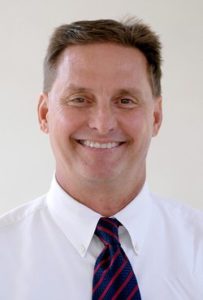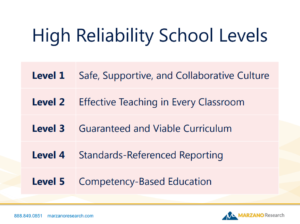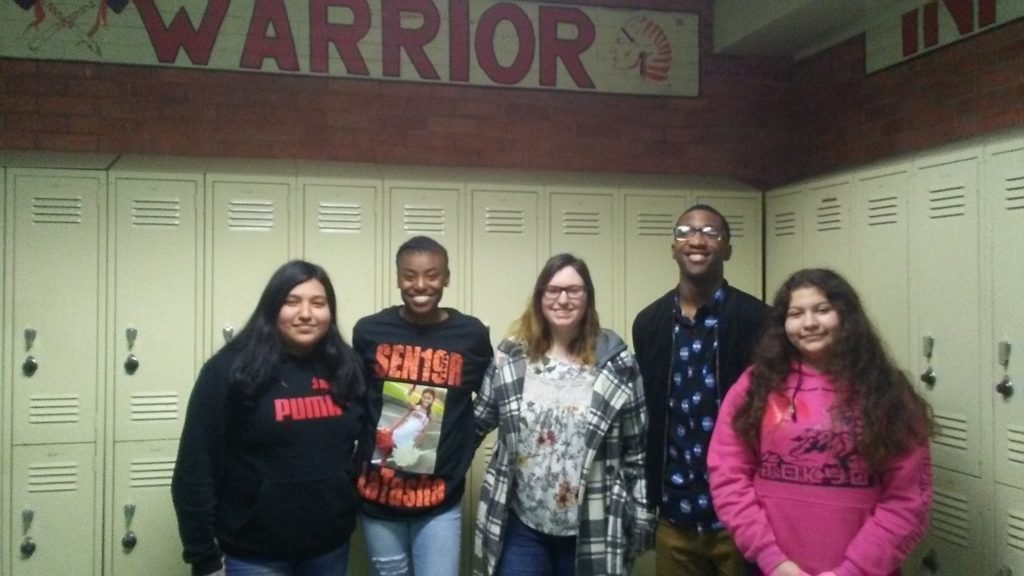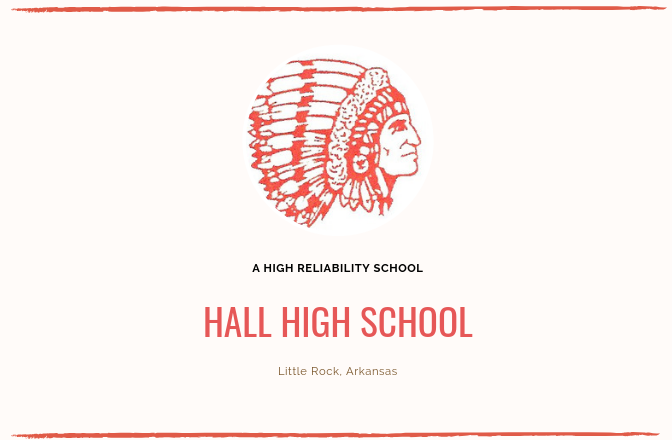
Dr. Mark Roberts, 2nd year principal of Hall High School in Little Rock, Arkansas, has been a principal for 28 years. In his 28 years, he has been the principal in 7 schools across the country from Virginia to California to Colorado and now Arkansas. Six of the 7 schools were low performing schools where Dr. Roberts was asked to step into the leadership role and transform the school to one where more students are achieving; a challenge that he says he enjoys. His secret? The work of Robert Marzano; High Reliability Schools.
“The High Reliability Process is embedded in everything that we do.” -Dr. Mark Roberts

According to Marzano, a High Reliability School has 5 levels (see image 1). Once schools reach level 5, They are considered a High Reliability School. Levels 1, 2, and 3 are the foundation for all schools and must be worked on simultaneously. With Dr. Roberts leading the way, Hall High School is providing professional development targeted on creating high performing classrooms for all students. This rigorous and highly focused professional development is an integral part of cultivating Hall High’s student-focused learning system. All schools in Arkansas received the High Reliability School book and were given free access to the level 1 survey to assess the state of their school culture and to guide their local cycles of inquiry for improvement. For more information about High Reliability Schools or Arkansas’ journey to transform education, visit the State Board of Education’s website.
Because of this work, Roberts says that Hall High made expected growth in his first year as principal. Level 1, a “safe, supportive, and collaborative culture” is key. “Hall has improved in so many ways: the best one is the environment Dr. Roberts has helped to create,” said Jimmy Dillard, a senior at Hall High. Stakeholder involvement is crucial in the decision-making process. Dr. Roberts uses surveys, leadership teams, and building-wide collaboration to gather different perspectives, analyze data, and track student progress. Roberts claims that these collaborative efforts net him 10,000 steps a day by walking the halls of the school to build these relationships and positively impact the culture of the school. “The perception of Hall is changing. It is an exceptional place for students to learn and grow and the future is really exciting!” said Roberts.
Student Leadership
When schools have a safe, supportive, and collaborative culture, student leadership thrives. Latasha Johnson, a senior at Hall, knows the impact that she is making. “This school year I’ve made a big impact on 9th and 10th graders, I carry myself well, and I am always in a happy mood spreading around good vibes and helping people,” she said. The following students are examples of what student leadership looks like at Hall High. “All of them are in leadership classes and participate in community service activities. Additionally, many of them participate in the new concurrent credit program,” said Sarah Merayo, a counselor at Hall High. Concurrent credit programs allow students to earn college credit while still in high school. From involvement in after school programs to volunteer work, it is clear that these student’s futures are bright!

Vanessa Otero-Martin – Leadership, AVID student, volunteer.
Latasha Johnson – Cheer, Track, Leadership. Many volunteer activities through high school.
Parker Mason – Leadership, Advanced Choir, Yearbook
Jimmy Dillard – Football, track, Leadership, Senior Board, lots of volunteer activities
Jasmine Camarena – HOBY Leadership institute last summer; Leadership (at Hall), AVID student, volunteer.

